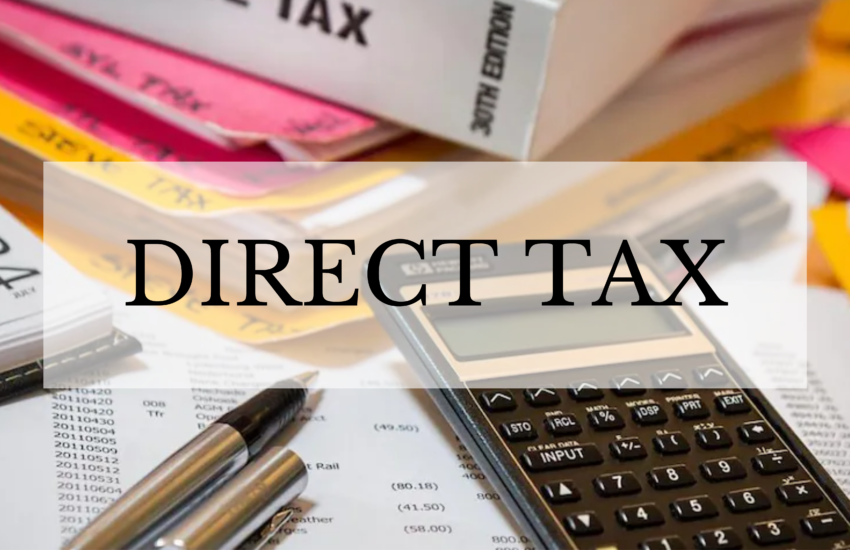1.CIRCULAR NO. 21/2022 [F.NO. 275/25/2022-IT (B)], DATED 27-10-2022
Vide this circular the Central Board of Direct Taxes (CBDT) in exercise of its powers under section 119 of the Income-tax Act, 1961, extends the due date of filing of Form 26Q for the second quarter of financial year 2022-23 from 31st of October, 2022 to 30th of November, 2022.
2. CIRCULAR NO. 22/2022 [F.NO.197/93/2022-ITA-1], DATED 1-11-2022
Vide this circular dated 01.11.2022 the CBDT condones the delay in filing of Form 10A up to 25th November, 2022 in respect of certain provisions of section 12A / section 10(23C) / section 80G / section 35 of the Income-tax Act, 1961 for F.Y 2020-21.
3. CIRCULAR NO. 20/2022 [F.NO. 225/49/2021/ITA-II], DATED 26-10-2022
CBDT extends due dates for filing of Return of Income for various assessees whose due date for furnishing of report of audit was extended to 07.10.2022.
The due date of Return of Income which is 31st October, 2022 in the case of assessees referred in clause (a) of Explanation 2 to sub-section (1) of section 139 of the Act, extended to 7th November, 2022.
Important Judicial Precedents
- For AYs prior to 2021-22 also, due date u/s 36(1)(va),not u/s 43B, applies for deductibility of employees’ contributions to PF,ESI etc
- Section 43B(b) does not cover employees’ contributions to PF,ESI etc. deducted by employer from salaries of employees.
- The words “any sum payable by the assessee as an employer by way of contribution to any provident fund or superannuation fund or gratuity fund or any other fund for the welfare of the employees” in section 43B (b) cover only employers’ contributions to these funds to be borne and paid by employer out of his income, and not employees’ contributions to these funds deducted by employer out of employees’ income/salary. The former are sums which are liabilities of the employer to be borne by him out of his own income. The latter are sums deducted from others’ income and held in trust by him and deemed to be his income under section 2(24)(x) unless deposited with concerned authorities on or before the due date as defined in Explanation (now Explanation 1) below section 36(1)(va) i.e. due dates under the relevant employee welfare legislation like PF Act, ESI Act etc.
- The non-obstante clause in section 43B cannot be interpreted as overriding section 36(1)(va) and cannot be interpreted to mean that employer will get deduction in respect of employees’ contributions deducted from their salaries and deposited by employer after the due date u/s 36(1)(va) but on or before the due date u/s 43B ie due date of filing ITR.
- The non-obstante clause in section 43B does not override section 36(1)(va) as both provisions operate in different fields. Section 43B(b) applies to employer’s contributions while section 36(1)(va) applies to employees’ contributions.
Checkmate Services Private Limited Vs. CIT [2022] 143 taxmann.com 178 (SC)[12-10-2022]
2. Bonus/Commission paid to employee who is not a partner/shareholder can’t be disallowed u/s 36(1)(ii)
Disallowance u/s 36(1)(ii) of bonus/commission paid “in lieu of profit or dividend” applies only to employees who are partners/shareholders
- Any sum paid to an employee as bonus or commission for services rendered has to be allowed as deduction as the reasonableness of the payment or adequacy of services rendered by the employee are not relevant factors in deciding the allowability of deduction.
- Disabling provision of section 36(1)(ii), which provides for disallowance of bonus/commission paid to employees “if the sum so paid is in lieu of profit or dividend”, applies only to employees who are partners or shareholders. In the facts of the present appeal, there is no finding that the employees are either partners or shareholders of the assessee. That being the case, assessee’s claim has to be allowed.
Karam Singh Malik Vs. ITO [2022] 144 taxmann.com 5 (Delhi Trib.)[25-10-2022]
3. Inherent powers of ITAT u/s 254(1) does not mean power to grant blanket stay of demand by waiving off conditions u/s 254(2A)
Inherent powers of ITAT u/s 254(1) does not mean power to grant stay of demand by waiving off 20% pre-deposit required u/s 254(2A).Inherent powers of ITAT u/s 254(1) covers power to grant a stay of demand but that does not mean that ITAT can grant stay of demand in violation of conditions stipulated u/s 254(2A) including pre-deposit by appellant of at least 20% of disputed demand. An institution like ITAT, which is itself a creature of the Income Tax Act, 1961, has to perform its functions within the limitations that the Income Tax Act, 1961, has imposed on its functioning.
Hindustan Lever Ltd. Vs. DCIT [2022] 143 taxmann.com 2 (Mumbai – Trib.)[26-09-2022]
4. EDC payable by assessee-developer/builder to HUDA can’t be disallowed u/s 43B(a) as the same is not a tax/duty/cess/fee
the word ‘fee’ in section 43B(a) is to be interpreted ejusdem generis the words “tax”, “duty” and “cess” preceding it. When so interpreted, it would be clear that EDC is not a ‘fee’ for the purpose of section 43B(a) as it is amply clear from HUDA Rules that it is a charge paid by the developer and builder for obtaining the services from the HUDA authority like sewage, roads, lighting, etc. and in case the assessee does not avail such facility, he is entitled for refund or adjustment of payment. As the payment is made against the facilities availed by the developer/builder/colonizer, EDC cannot be put in the basket of mandatory or compulsory payment of duty, tax, cess or fee, therefore, section 43B of the Act does not stand attracted in the present case to the payment of EDC by the assessee
Vipul Ltd. Vs. DCIT [2022] 143 taxmann.com 105 (Delhi – Trib.)[29-09-2022]

